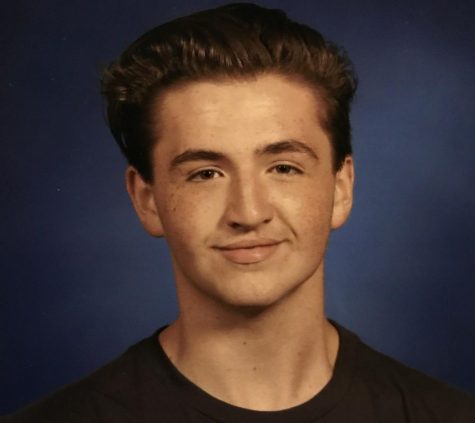Is it too late?
Recent Climate Report By The UN Reveals the Full Extent of Climate Change, and the Small Window We Have to Reverse It

A sunset off of Newburyport. With the recent climate report detailing the disparity of the Earth’s ozone layer, how many more sunsets like these can we expect? (Andrew Photos)
November 9, 2018
A little over a week ago, the United Nation’s International Panel on Climate Change published a report chronicling the climate crisis the world is facing. It confirmed something many already knew, the world is in pretty rough shape. The thing most, if not all, did not know however, is the extent to which the problem reaches, and the ever-shortening timetable for setting it right again.
The report did not go unnoticed by the Triton student body. Many students that were asked admitted that they had at least heard about it, but of those students, many also said they ignored it because they did not think it pertained to them.
“A lot of kids hadn’t really heard about it, myself included,” said Triton junior Felicia Cardillo. “I mean I know it’s about climate change and all but, to be honest I have no idea what was really in it.”
The report showed what can be looked at as a “best-case-scenario” for climate change. In order to keep us from crossing the line of no return, we would need to make it so that the global temperature does not exceed a 2.7 degrees Fahrenheit increase by the turn of the century. The only perceived way to do this would be finding a way to wean ourselves off of coal and other such fossil fuels, an adjustment so abrupt that according IPCC’s there is absolutely no documented historic precedents.
It is important to point out that the report makes sure to say that this would not stop some of the harsh and violent effects of climate change, such as the heat waves, record storms, severe droughts, etc. But when it comes to aspects such as the polar ice caps melting and the subsequent sea level rise, it may help to avoid catastrophe.
Climate change is not a new topic of discussion, however for decades there have been countless debates and arguments over the tangibility, responsibility, and even existence of it. Many students and teachers alike at Triton harbor their own thoughts and feelings about the report, and the repercussions it describes.
“We produce way too much greenhouse gas and we eat way too much meat,” says forensics and marine biology teacher Mr. Ivan Ferron. “We created this problem and it’s up to us to try to find ways to turn it around, or at least slow it down.”
It’s not all hopeless though, says Ferron, “Eat more vegetables, drive cars that aren’t as wasteful, ‘reduce, reuse, recycle’, carpool, clean energy i.e. solar power and wind power, underwater turbines taking advantage of tidal flows, the list goes on and on. We just need to take a minute, and rethink everything. There is a surprising amount of unnecessary waste woven into the basic things we do.”
“The big thing though,” says Ferron, “is that we start thinking intelligently about what really happens when those waters start to rise and coastal cities like Boston, New York City, and Baltimore wind up being swamped.”
“At this point, it’s obvious, and it’s backed up by a lot of scientific evidence,” says anatomy teacher Dr. Ellen Moore. “It’s not just me that thinks that. The meteorological society, all of these academic, scientific organizations have come forward and confirmed that the evidence that mankind is responsible is solid.”
“It’s our job, as stewards of the Earth, to react to the UN’s claim that we have 20 years or less to turn things around. Not just us, we need our elected representatives to react too,” says Moore, “We owe it to ourselves to find out where every candidate stands and make sure that we are putting forward politicians that are going to make a difference, regardless of party.”
If the UN report teaches one anything, it is that we no longer have the luxury of sitting back and claiming ignorance. Even if you do not believe in the issue, and there are those who do not, you cannot say that you were not warned. It is not a partisan issue, democrat or republican, as they all live on this Earth and breath the same air. The report transcends politics. It is simply a last minute slap in the face, to not only Americans, but the whole world, to make good on their promises of course corrections and to change things before we all realize, it’s too late.


